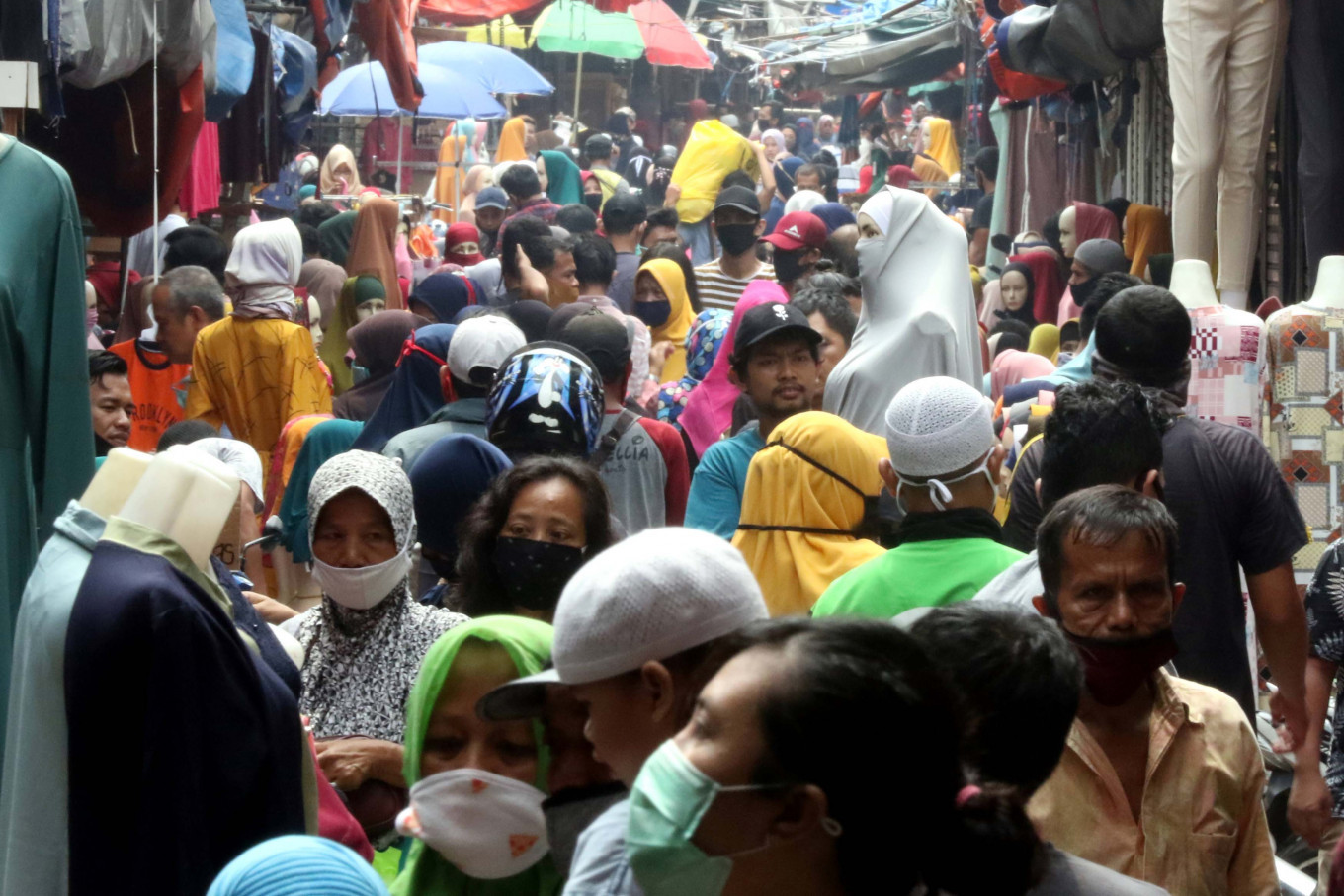Popular Reads
Top Results
Can't find what you're looking for?
View all search resultsPopular Reads
Top Results
Can't find what you're looking for?
View all search resultsFaraway, so close
Though the government has banned the exodus out of town to prevent the escalation of infection rates outside the capital, Greater Jakarta itself remains precarious.
Change text size
Gift Premium Articles
to Anyone
T
he Idul Fitri celebrations are expected to fall on May 23-24, depending on the sighting of the moon to end Ramadan. As the Islamic holiday nears, families are still in confusion as to whether they can have traditional gatherings or not.
For Jakartans, Governor Anies Baswedan made it clear on Monday that people could just have a “virtual mudik” (exodus), while authorities from the city’s Public Order Agency and the National Police said the mudik was allowed within the sprawling area of Greater Jakarta, one reason given being that people commute anyway on a daily basis.
The megalopolis is largely a red zone as the country’s epicenter of COVID-19; Anies has said cases are declining and would surely like to keep it that way. On Monday, official figures showed 6,059 cases in Jakarta from a national tally of 18,020, down from earlier days when the capital accounted for half the cases.
The confusing statements on Idul Fitri will still need to be cleared up at least by COVID-19 taskforces of all levels, as many families may be preparing big meals for family members living in Jakarta, Bogor, Tangerang, Depok and Bekasi, who hope to visit them, as if these are normal times.
“Just the family” in Indonesia can mean dozens of people, including grandchildren, and distancing is out of the question in modest homes. “Everyone needs to stay at home,” Governor Anies stated Saturday. “The virus […] doesn’t care if it’s Lebaran or not. Let’s not exacerbate the situation in Greater Jakarta […] and render our [mitigation] efforts over the past two months useless.”
“There’s no such thing as a local mudik; only a virtual mudik is allowed,” he said. Urbanites may largely have access to the internet and can manage mobile communication to replace family gatherings and the tradition to ask for forgiveness from parents and one another; but constant campaigning without confusing signals is needed to make the notion acceptable.
As things stand we still see heavy traffic and lax enforcement of social distancing, such as at the markets, which face their busiest time of year ahead of Idul Fitri. Such scenes, which we fear will continue next week, means there will be too many clusters of potential infection with the coronavirus.
Though the government has banned the exodus out of town to prevent the escalation of infection rates outside the capital, Greater Jakarta itself remains precarious. A few public centers, such as the Benhil Market in Central Jakarta, have seen much less busy days compared to the usual Ramadan bustle for fast-breaking food, but the biggest market in the city’s downtown, Tanah Abang, still draws many customers with little supervision of physical distancing.
To their credit, several neighborhoods that have come to realize they can only depend on themselves to enforce safety protocols, have arranged virtual meetings just to remain close to one another amid physical distancing.
But close cooperation among authorities with heightened public awareness is vital to prevent even more infections and save lives among the dense population of some 13 million people in Greater Jakarta.










